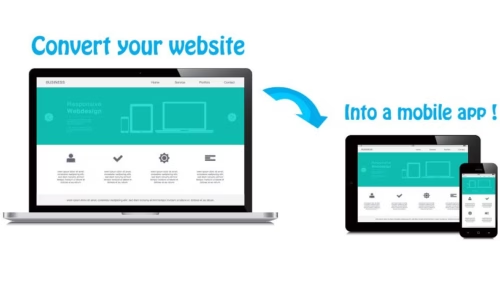We at DevTeam.Space provide pretty much all types of full-stack development services. Now, you have several programming languages, frameworks, and libraries for full-stack development. So much so that you might find it hard to pick a programming language and framework from a large list of prominent options.
Ultimately, you need to analyze your organizational context and project requirements to zero in on a technology for your web app development. Rest assured that we at DevTeam.Space have the expertise with that technology stack. See below for a brief and representative list of programming languages and frameworks we use for full-stack software development.
Hire expert developers for your next project
You might need some help to decide on the right technology stack, and we are here for you. Submit the DevTeam.Space product specifications form to get a complimentary discovery call with an experienced tech account manager from our team.
Top 10 full-stack development programming languages and frameworks
Our clients prefer various full-stack development technologies. Experts have different opinions about the best full-stack development technology. Our community of 1200+ developers includes many expert full-stack developers, and their choices vary too. That’s natural given the many excellent full-stack development solutions.
The following are just a few prominent full-stack development technologies:
- JavaScript
- Node JS
- Angular
- React JS
- Spring Boot
- Java
- Python
- Golang
- Django
- Ruby on Rails
Note: This is neither an exhaustive list nor is it in the order of popularity or preference. A debate to choose “the best” full-stack development technology might go on forever, which is the beauty of full-stack development!
We now talk about the advantages offered by a few of these technologies. Just to emphasize on the vast landscape of full-stack development technologies, we are including 3 major programming languages and/or frameworks based on them.
Hire expert developers for your next project
1,200 top developers
us since 2016
JavaScript
In the world of software development, there’s hardly anyone who doesn’t know about JavaScript. Released in 1995, JavaScript remains a mainstay for many categories of software development. It’s a great choice for front-end web development. However, organizations also use it for many other purposes, e.g.:
- Game development;
- Server application development;
- Creating web servers;
- Developing learning software systems;
- Social media application development.
- Meta (formerly Facebook), LinkedIn, Netflix, and Uber are just a few of the leading apps developed in JavaScript. No wonder then that JavaScript remains one of the most popular programming languages even after so many years.
Our developers love JavaScript, and so do our clients. That should surprise no one given the advantages offered by JavaScript. The following are a few of the benefits of using JavaScript for full-stack web development:
- The design, structure, and syntax of JavaScript prioritize simplicity. Therefore, developers can learn JavaScript easily.
- You will consider client-side security as very important when developing the front-end of a web app. JavaScript offers built-in security features that make life harder for cybercriminals. Hackers can’t take advantage of web application vulnerabilities easily.
- JavaScript is a lightweight language. Therefore, JavaScript apps have less overhead than apps developed in many other languages.
- Designers of JavaScript paid attention to performance. Due to very good speed, JavaScript lends itself well to complex operations.
- JavaScript enables code execution and data processing on the device of users. This factor reduces the load on the server.
- We can hardly conclude any discussion about JavaScript without a mention of the large JavaScript ecosystem of open-source frameworks, libraries, and other development tools. This vast ecosystem is incredibly diverse. It’s vibrant and growing. No matter what you want to develop, you will likely find a suitable framework or tool in this ecosystem. Take the example of full-stack web development only. You have Angular and React JS, two popular front-end web frameworks. For back-end development, you have Node JS, the famous JavaScript runtime environment. You also have Express JS. This ecosystem of frameworks, libraries, and tools makes life easier for programmers.
- Programmers can easily develop user-friendly interfaces with JavaScript. Also, JavaScript makes it easy to create dynamic web pages.
Django
Many organizations and developers love Python. Django, a Python-based web framework is an excellent choice of back-end web development technology for them.
This open-source framework was launched 2 decades back. Django remains highly popular even now. If the steady stream of valuable enhancements to this framework is any indication, Django will retain its pride of place for a long time to come.
Hire expert developers for your next project
Prominent websites like The Washington Times, Mozilla, Instagram, and Pinterest use Django. Our Python developers love Django too. And why wouldn’t they? Take a look at the advantages offered by Django:
- The creators of Django wanted to make web development quicker. Django fulfills this promise well by facilitating rapid development.
- Many software development experts have reviewed the security features of Django. The general consensus from these reviews is that Django can protect sensitive data well from cybercriminals.
- Django offers many useful capabilities for functions like user authentication and content administration. Developers need to do less work due to this.
- The design of Django is such that programmers can learn it easily.
- While using Django, developers can obviously take advantage of the large Python ecosystem of libraries and tools.
- Non-functional requirements (NFRs) like performance and scalability are important to full-stack developers. They can easily meet these NFRs with Django.
Ruby on Rails
“Ruby on Rails is fun!” is a common opinion of many Ruby on Rails (RoR) developers. DevTeam.Space RoR developers agree! It seems that leading companies like X (formerly Twitter), Shopify, GitHub, and many others agree too. Indeed, the developer-friendly characteristics of this open-source Ruby-based framework are major reasons for its enduring popularity after nearly 2 decades of its release.
Developer-friendliness apart, RoR offers many more advantages to back-end web developers. The following are just a few of them:
- You will notice in publicly available performance benchmark metrics that Ruby on Rails performs fast enough even when the user load increases substantially. You likely prioritize scalability, which makes RoR a robust option.
- You would want your developers to work on the important business logic. Your team should have to spend less time coding common functions. RoR takes care of this with the help of its ready-to-use libraries and “gems” (plugins).
- You certainly won’t like your programmers having to write repetitive code. Ruby on Rails conforms to modern coding and design principles like “Don’t Repeat Yourself” (DRY). Your team gains productivity due to this.
- You will notice that RoR helps considerably with testing. It provides Minitest, a useful testing tool. Ruby on Rails also supports the “Test-Driven Development” (TDD) paradigm.
- Note that Ruby on Rails implements the Model-View-Controller (MVC) architecture pattern very well. You will find the maintenance of RoR apps quite easy due to this.
- The love of RoR developers for this framework directly results in a large, growing, and vibrant community of developers. Your team will get excellent community support.
The organizational preferences in your company play a part in choosing the right full-stack development technology. Your unique project requirements matter too. At times, clients might have dilemmas due to the wide range of choices. We at DevTeam.Space have helped many clients to choose the right programming language, framework, library, and other development tools. We can help you too via a complimentary discovery call. An account manager with full-stack development experience will listen to your requirements and help you pinpoint the right technology solutions. Submit your project request via the button below.





















